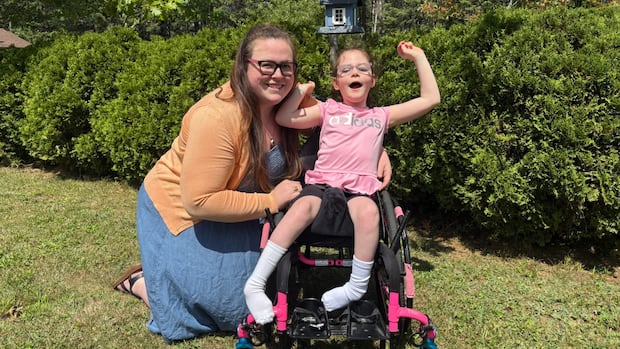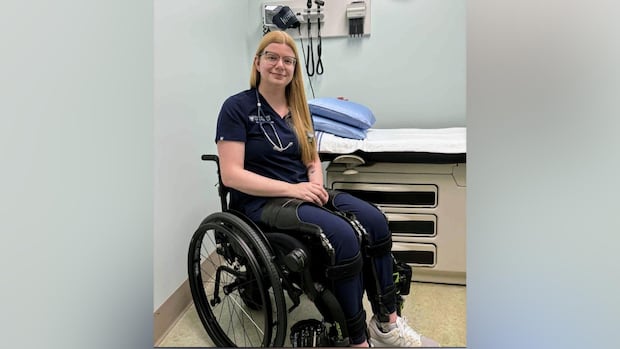Staff at a hospital in Saint-Jérôme, Que., say the emergency room was not prepared to handle a patient like Normand Meunier, a quadriplegic man who developed a severe bedsore during his stay in January 2024.
Days into the coroner’s inquiry into the death of Meunier — who chose to pursue medical assistance in dying as a result of the massive wound — staff who treated him testified about his care and the hospital resources available at the time.
Meunier spent four days on a stretcher in the Saint-Jérôme Hospital’s emergency room after he arrived with a respiratory virus.
His partner, Sylvie Brosseau, says without access to a special mattress, Meunier developed a major pressure sore on his buttocks that eventually worsened and stretched down to his bone and muscle. It made his recovery and prognosis bleak.
Many of the inquiry’s witnesses — former and current hospital staff — saw Meunier only once on their shift, sometimes for just a few minutes.
Hospital missing equipment, dealing with staff shortage
Nurses testified that they inquired about a special pressure mattress for Meunier that would help prevent bedsores, but said they never saw the mattress arrive.
Some said the emergency room at the time was overcrowded and understaffed and was operating at more than 150 per cent capacity with most shifts short three or four nurses.
Stéphanie Arruda-Tavares, who was a nurse at the time of Meunier’s hospital stay, says it was fairly rare that she had patients with bedsores. In her memory, there was bedsore training available, but it was not mandatory at the hospital.
She said the ER was not equipped to receive a patient like Meunier because of the absence of therapeutic mattresses and few bariatric mattresses — used for plus-sized patients.
Other nurses who testified said the hospital was missing material and equipment, even pillows on one occasion. Some mentioned that patients were waiting too long to be seen due to the staffing shortage.
‘You’re still here?’ nurse recalls asking Meunier
Marion Lenoble, a nurse who worked in the emergency department, says she saw the need for a therapeutic mattress and put forward the request.
She said she had to communicate to the night assistant head nurse who would transfer the request to the head nurse during the day, who would then make the request. Lenoble says the next night, she was surprised to see Meunier still in the emergency room.
She remembered asking, “you’re still here?”
Meunier’s file was also complex, testified Dr. Pierre-Olivier Tremblay, an ER doctor at the Saint-Jérôme Hospital. He said Meunier had many comorbidities including hypertension, diabetes and heart problems. He was also morbidly obese and quadriplegic.
Tremblay testified that Meunier didn’t seem to be suffering physically, but rather psychologically.
He said he asked a nurse to look into getting a special mattress, saying “it was a justified request.”
Patrick Martin-Ménard, the lawyer representing Meunier’s partner, says the situation raises a number of questions.
“Right now, we have more questions than we have answers,” he said. “Not only with respect to resources, but more broadly with respect to the quality and safety of care at this hospital and in the health-care system more broadly.”

He says they’re hoping to formulate a “full picture of what happened.”
The day before his death, Meunier spoke to Radio-Canada and said he preferred putting an end to his physical and psychological suffering by opting for a medically assisted death. Meunier died on March 29, 2024.
On Monday, Brosseau, his partner, was emotional describing how Meunier’s last two weeks were horrific. She noted that she hopes his story will change things moving forward.
More hospital staff are set to testify next week, when the inquiry will also hear from Brosseau.







